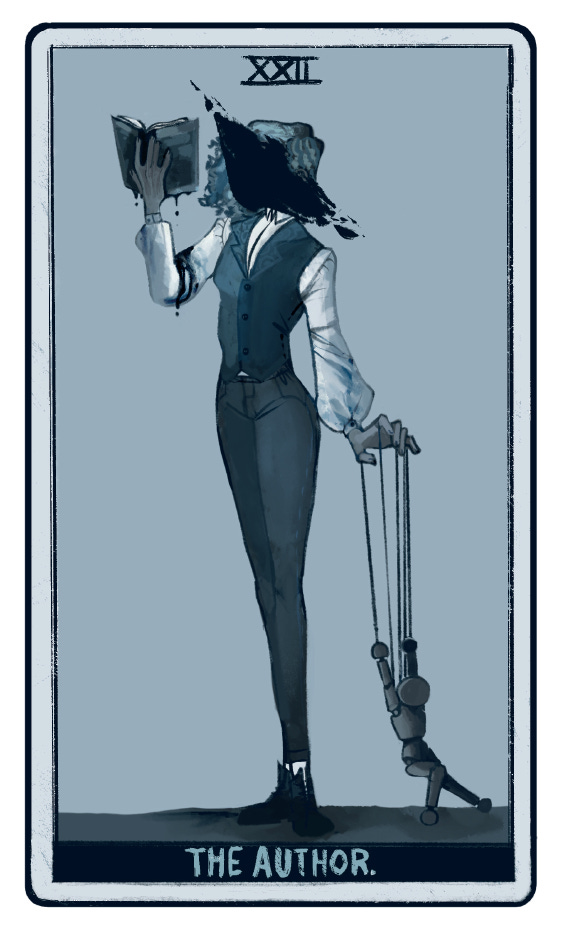Hi friends!
Who decides your story’s significance?
A deity? A doctor? Your parents? A political incumbent? Lately, the Supreme Court has been revising centuries of constitutional precedent. Are they the final editors?
Years ago, I took a couple hip hop dance classes. Who cares if I couldn’t follow the choreography and kinda just did the grapevine in the back with random arm motions? I thought it was a hilarious way to move my body and maybe learn something for da club, etc, until someone called me “brave” to “still try.” Awkward. Two classes counts as taking the class, right?
Doing things differently can be uncomfortable. Especially in current contexts, going off-script can feel both necessary and absolutely overwhelming.
We all have our own lived experiences and material circumstances. Still, this essay invites you to defy, reverse, and fill-in the scripts you’re given the way you want.
Light Hive offers essays on engaged mindfulness for complex times. Subscribe for applied takes on Buddhist thought, through the lens of a queer, transracial adoptee.
Between 1921 and 1922, Luigi Pirandello staged the first Italian and English productions of Six Characters in Search of an Author. This play, featuring six fictional characters interrupting a rehearsal with stage crew, actors, and a director, remains an important text.
And still he was unhappy.
You see, Pirandello fancied himself a real writer. Although writing for the stage, his goal was to elevate Italian arts from something low-brow and pedestrian (a lot of Italian theater had been literally in the street) to something of lasting literary value.
It would be an uphill battle, for reasons that might not be obvious to us mortals of normal intelligence. Besides plays, he penned several complaints about how most were too basic to get his brilliance. Strangely for a freaking playwright, he was endlessly irked when actors or directors inevitably failed to interpret his greatness.
And so Six Characters in Search of an Author represented work he would forever interrupt, control, and be the searched-for good. As a Benito Mussolini fan—the Italian totalitarian who sought to control every aspect of life—his quest to control speech, action, outcome was, at least, on brand.
His complaint about the inability to control outcomes is alive today, as it was before him. For myself, I spend time on these essays because I want them to read how I wrote them, dammit.
We can always break character. We get to decide how we meet each moment.
Sometimes doing things differently is an act of freedom.
The Wheel of Sameness
What are you rehearsing? What world are your actions building?
Routines and surveillance to stay “on script” makes changing habits and behavior difficult. Consider how socially strange it can feel to take “how’s it going” as a question deserving of an honest answer.
The same goes for staying “in character.” Folks like this word “authentic.” Some are very comfortable announcing when others aren’t being “genuine,” as if people are leather, not living. When people reach for change, they risk being called “performative.”
To me, performativity refers to how repeated actions—like gesture, speech, collective choreography—shape how we embody ourselves and our relationships. Doing builds character. Together, we make a cast and then all the world’s a stage.
The mini-Pirandellos of authenticity, reality, and intention forget it’s hard to be alive and not be performative. Their judgements restrict behavior and restrain possibility. They perform into practice, rehearse into being, cultures that hesitate to evolve, afraid of social judgement and inconvenienced by change.
Buddhists might recognize this embodied doing as similar to karma. Both describe how repeated practice creates context, both are colloquially misapplied, and neither inherently refers to cosmic revenge.
Lama Rod Owens uses the word “rehearsal” to discuss karma in The New Saints:
Karma is made up of cycles of energy that we rehearse so much that they become patterns, which morph into narratives, which solidify into realities. Those realities become boundaries that we intensify through habitual reactivity. This rehearsal is how the carceral state [fear or actual threat of being disappeared, “expendable”] is maintained — or how it is disrupted. To put it another way, karma is the energy that drives the experience of reality as an experience of incarceration or as an experience of liberation.
Building liberatory patterns that turn reactions into responses is hard enough, let alone when fear is rampant. That’s why it can be useful to remember we can reframe and practice moving the story toward another direction.
And this is why Sam Leigh’s Death of the Author offering of narrative rebellion is a critical practice tool for current times.

On Defiance and Reversals
Pirandello sought control. Sam Leigh offers compassion.
About a century after Six Characters in Search of an Author premiered, just before someone strikingly similar to Mussolini would retake the oval office (parallels made in these Common Dreams and Atlantic articles), Sam Leigh released Death of the Author.
As a solo journaling game, Death of the Author is played with a tarot deck and word processor or, my preference, fountain pen and paper.
The writing game is dedicated to “all [their] characters that deserved better.” With this emotional context, it makes sense that Leigh does more with four characters (“You,” a friend, a foe, and the author) than Pirandello did with 20.
“You” can be a protagonist, antagonist, or side character, as the player prefers. This character provides connective tissue between the ally and foe, whereas the “author” tries to keep the story in check.
The game is divided into a set-up and then five “chapters” that move from prologue to resolution. Each chapter is played in three scenes. These are three cards drawn, each orientation corresponding to a different prompt. Throughout, characters negotiate agency against a seemingly all-powerful author.
And this is where defiance and reversals come in, of which every player has exactly one use per chapter.
Reversals: you choose to flip the tarot card to receive the other prompt.
Defiance: Each prompt has underlined details. To defy what you’ve been given, replace what’s underlined with whatever you want. This is your story.
Contrary to the title, the game reflects how change isn’t just about fighting authority with aggression and violence. Sometimes change happens by redefining the relationship. In a footnote, Leigh writes
While Death of the Author sets up the Character and Author to be in opposition, this is not the only route the two can take. Perhaps the Author cares deeply about the Character, who despises them. Perhaps the Character worships the Author as a god, who simply views the Character as a tool. Perhaps the two reconcile and find a way to achieve what they both desire. Or, perhaps, in the end, the Character will seek revenge on the Author, a knife hidden behind their back.
The game was designed to be played alone, but there’s something powerful about seeing resonances and moments of divergence in a non-judgmental, exploratory group.
Whether alone or with the Creative Coalition this month, practice narrative agency.
Defy the powers that would define your character for you.
Creative Coalition: July 13, 20, 27 4-5:30 PT
Defy the script via Death of the Author in a mindful, exploratory container.
Over three Sundays in July, the Creative Coalition will center Sam Leigh’s Death of the Author, interfacing with who gets to control the narrative and how meaning is made.
No “gaming” or meditation experience is required. You do not need to buy anything in advance but it’s always nice to support cool creators like Sam.
This gathering will unfold over three 90-minute sessions. We’ll begin with a guided meditation, then cycle through writing prompts and sharing (encouraged, not required). Every session closes with a debrief, reflecting on what came up during practice.
Some participant feedback:
“Your presence is so calm and playful / full of energy at the same time which feels really good to be around.” — Hanna
“I've really enjoyed exploring the intersection of mindfulness and creativity with Logan. The space they hold leaves me feeling inspired and in touch with the parts of me that like to imagine and play and that usually get covered over by what I think ‘adulting’ should look like.” — Julian
(full transparency: this recently came from a former student of mine, not CC) “Overall I found the most important practice I learned was never to feel like you aren't worth it. Coming into UCLA, I had the feeling I would suffer from intense imposter syndrome. But in your class, I felt like my opinions were validated and mattered which is something I will cherish forever, so thank you so much.” — Nazanin
6 spots only.
Base Rate: $45
Paid subscribers get this free! The sign-up code is in the paid chat.
If you’re curious but cash-strapped, email for a “pay what you can, even if it’s $0” link. Two spots will be granted, first come, first served.
▶️ Sign up here!
If you liked this, consider checking out:
Bio
Logan Juliano (they/them) holds a PhD in Performance Studies and is a lecturer at the University of California, Los Angeles. Through Light Hive and as co-editor of Notes from the Inflection Point, they write to share reflections and practices amid ecological and sociopolitical uncertainty. Folks tell them to stick to their lane, but Boy George, they are quite a karma chameleon.








+1 for Pirandello. I love it when my theatre degree overlaps with games.
A growing concern of mine is how the very human need to find meaning in the world can create narrative prisons / prisms through which we see the world, and thereby miss reality for the story we impose over it. I've been especially focused on how the need for these narratives has come to eclipse our public life -- but you wisely point out that these narratives blind us to truths about ourselves, too.
Paul Czege writes about journaling games: "They are acts of purging ourselves of narratives that aren't in our interests and enlivening ourselves *for* the temporal world, and we sense it about them."
Sam's "Death of the Author" is a brilliant instantiation of that idea, making the idea of narrative control itself quite literal. It is, of course, impossible to shed falsehood when we play with words -- reading the words "touch grass" is very much *not* touching grass! But I am so very interested and invested in your effort to try.